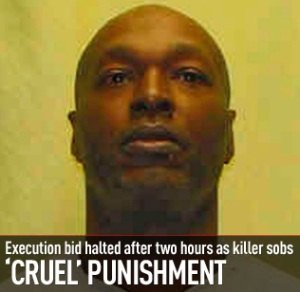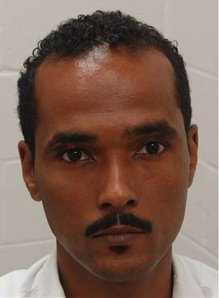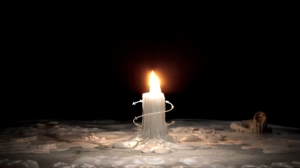The death penalty seems to me to be a form of punishment that should not still exist in first world countries (the “civilized” world some say), or any country for that matter. Still, many countries around the world use to the death penalty as the ultimate form of punishment for its population. These countries are: Belarus, China, Cuba, Egypt, India, Iran, Iraq, Japan, Malaysia, Mongolia, North Korea, Pakistan, Saudi Arabia, Singapore, South Korea, Taiwan, Tonga, United States, Vietnam. I still don’t understand how these countries can’t see what capital punishment for what it is, legalized murder by the state. So many countries have realized the inhumanity in the type of punishment and banned it, countries like Australia, Austria, Belgium, Bhutan, Brazil, Bulgaria, Canada, Cyprus, Denmark, Ecuador, France, Germany, Hong Kong, Hungary, Israel, Italy, Mexico, Netherlands, New Zealand, Norway, Philippines, Poland, Portugal, Romania, Russia, San Marino, South Africa, Spain, Sweden, Switzerland, Turkey, United Kingdom, Venezuela. As we can see, Capital Punishment has been practiced by most countries, and 58 nations currently still use this barbaric form of justice, while 97 nations have abolished it.
The UN General Assembly has adopted in 2007, 2008, and 2010 a non-binding calling for a global moratorium on executions, with plans to eventually abolishing them. Even if most of the world’s nations have abolished capital punishment, over 60% of the world’s population live in countries where executions take place, seeing as how China, India, the United States of America and Indonesia, the four most populous countries in the world continue to apply the death penalty (although in India and Indonesia only rarely. Each of these four nations have voted against the General Assembly’s resolutions. It is believed that in 2010 there has been about 5000 executions in China (there are no official numbers that are released by the government, but these are the estimates of different human rights organizations), 252 in Iran, 60 in North Korea, 53 in Yemen, 46 in the United States, and many other lives have been taken in the name of justice throughout the world. Singapore, Japan, Taiwan, South Korea and the United States are the only developed countries that have retained the death penalty. The death penalty was overwhelmingly practiced in poor and authoritarian states, which often employed the death penalty as a tool of political oppression.
I believe that the death penalty is ineffective in its role and the impact that it is meant to have, Albert Camus has greatly influenced my view on the subject with his essay Reflections on the Guillotine. Countries where the death penalty have been abandoned, crime has not risen. The world has changed since its implementation, capital punishment no longer serves as the deterrent that it might have been. One glaring fact that I have noticed is that during its implementation in the past, executions were conducted in public places and now it has been done privately in prisons. Even though I agree with conducting executions in private, it takes away the element of deterrence and renders the death penalty as a means for the state to dispose of those that they see as irremediable.
The threat of death is also insufficient to prevent people from committing crimes seeing as how death is the only common fate that is shared by all, regardless of guilt. Seeing as how most murders are not premeditated no deterrent can be effective and in the case of premeditated murder the deterrent is still insufficient to stop those who have already decided to commit the act.
Without serving a purpose, capital punishment is reduced to an act of revenge that only breeds further violence, which is fueled by sadism and perpetuated by tradition. This is then an act of state of revenge just like the concept of an eye for an eye and justice is to be based on law and principles and not base instinct and emotions.
Also, there is no absolute authority that is capable of delivering judgement as no man posses absolute innocence himself. Because of this the maximum penalty should be set at life labour due to the possibility of judicial error, a life of labour is first of all much harsher than death and it carries the possibility of being reversed, the convicted also can have the option of choosing death via suicide.
And lastly, capital punishment is inappropriate because by conducting revenge for grievances it simultaneously hurts the family and loved ones of the convict in the same manner as those being avenged were hurt by the initial crime.
I believe that it is now time to take action, there are two petition campaigns that amnesty international are conducting against the executions of two men in the USA. The death penalty is a contentious social issue, 37 states in the USA still practice this barbaric form of so-called justice. The most recent Gallop poll shows that 61% of Americans support the death penalty in the case of aggravated murder and more rarely for felony murder, these numbers drop drastically if there was on option for life imprisonment without parole. The first execution by the United States judicial system was Manuel in Illinois County in June of 1779 for Witchcraft; most executions in the beginning were for aiding slave runaways or slave revolt, which was a capital crime, these people have all posthumously pardoned since the abolition of slavery in the USA. The legal process of the death penalty in the USA has five steps: (1) sentencing, (2) direct review, (3) state collateral review, (4) federal habeas corpus, and (5) the Section 1983 challenge, which has become increasingly important (Clemency or pardon, through which the Governor or President of the jurisdiction can unilaterally reduce or abrogate a death sentence, it’s an executive rather than judicial process.). Right now in the US there are two men on death row that Amnesty International are trying save with an aggressive petition campaign to hopefully stop the execution of Romell Broom and Reggie Clemons.
The action that I think is more pressing is the petition to stop the second attempt for the execution of Romell Broom in the state of Ohio. On September 15th 2009 the technicians attempted for over two hours to execute Romell Broom by lethal injection, even with the help of Romell, the state was not able to complete the task because they were unable to find an adequate vein. During this witnesses have stated that you could clearly see the pain that he was experiencing, clearly showing the cruel nature of executions. This is not to pardon the crime that was committed for which he was found guilty, and it is not to minimise the suffering of the family of the victim, we are demanding that Romell Broom be spared of death by lethal injection and that he serve time in a Ohio penitentiary.
Reggie Clemons was sentenced to death in St. Louis as an accomplice in the 1991 murder of two young white women, Julie and Robin Kerry, who plunged from the Chain of Rocks Bridge into the Mississippi River. Two other black youths were also convicted, including Marlin Gray (executed in 2005). Clemons has consistently maintained his innocence. His case illustrates many of the flaws in the U.S. death penalty system. Shortly after a 2009 execution date was stayed, the Missouri Supreme Court assigned a judge (a “Special Master”) to investigate the reliability of his conviction and proportionality of his sentence. Amnesty International urges the state of Missouri to recognize the serious problems with Reggie Clemons’ case and to commute his death sentence. It is also important to note that there has been many irregularities that have arisen in this case, professional mistakes by the prosecution, allegations of police brutality and intimidation, possible racial prejudice, and an inadequate jury representation during the trial. There is a petition that has also been created to stop the execution of Reggie Clemons, Amnesty International is leading this campaign. Amnesty International opposes the death penalty in all cases without exception regardless of the nature of the crime, the characteristics of the offender, or the method used.
I urge you to please take action and print out the petition and bring them to your workplace, school, social clubs, and whatever other activities. We must speak up and act until we are able to live in a world that is free of the death penalty and that humanity is honored and recognized.












